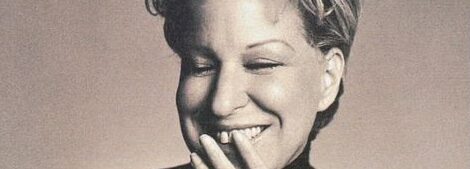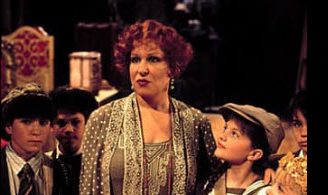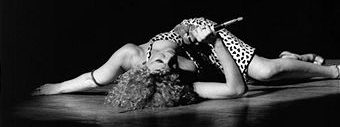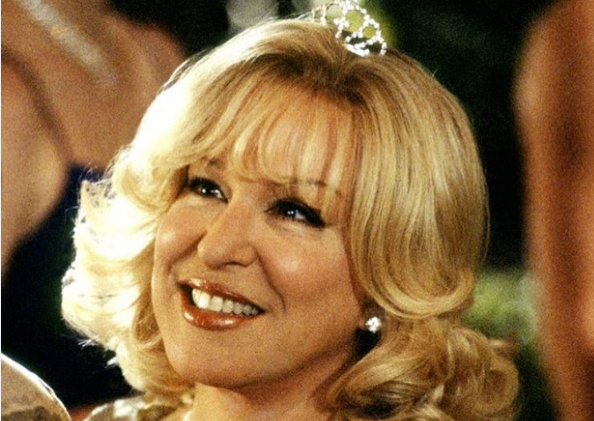The Hollywood Reporter
Daniel Fienberg: The 10 Worst TV Shows of the Year
By Daniel Fienberg
12/20/2019
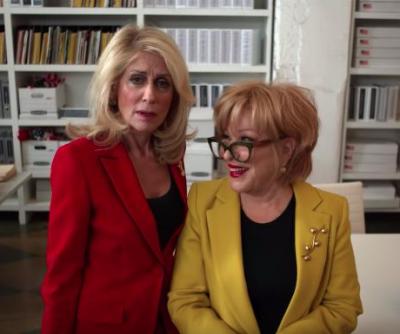
Mister D: And in looking at "best of" lists and "worst of" lists, it really comes down to whether you like something or not, for whatever reason.
Bungled literary adaptations, limp political satire, toothless genre experiments, a reality-contest embarrassment, a wannabe 'This Is Us' weepy and the underwhelming return of a fan-favorite noir were among low points in the viewing year of The Hollywood Reporter's chief TV critic, with a special badge of dishonor for a thrill-free sci-fi thriller.
Since the phrase “peak TV” refers to quantity and not quality, it’s no surprise that if there were 600+ scripted television shows in 2019, there’d be more good TV than ever before, and also more bad TV.
Equally unsurprisingly, Netflix leads the way on my list of TV’s worst shows of the year — or, more accurately, most disappointing shows. Netflix has three shows in this negative list, but it also has three shows in my Top 10, so that’s all pretty reasonable. These things happen when you drop two or three new shows nearly every weekend.
As ever, to make this list I had to have watched at least a few episodes of a show. It’s not enough to just have a bad pilot. After all, sometimes bad pilots are followed by better series. The pilot for The Morning Show is definitely one of my least favorite things of the year. The subsequent series? Up and down, but definitely better. Since a colleague reviewed Netflix’s What/If, I watched one episode and said, “Nope. Not for me.” I skipped Netflix’s Another Life entirely.
This list includes beloved failures that went off the rails, several literary adaptations that completely missed the point, a couple network shows that couldn’t settle on a tone and, of course, The I-Land. This list is in alphabetical order, but if it were to be ranked, it’s really tough to top The I-Land.

A lot of talented people worked on Almost Family, including executive producer Jason Katims and director Leslye Headland, who helmed the pilots for one of the best shows of the year (Russian Doll) and, here, one of the worst. The problem, more than anything, was ultimately one of tone and balance. There’s probably a good show about women who, in the aftermath of a fertility clinic scandal, discover that they’re siblings, perhaps even one in which one of the women is the daughter of the despicable head of that clinic. This, however, is not that good show, relying too heavily on a screwy overall approach in which a remarkably gross situation is treated as inexplicably charming, amusing and cutesy rather than as, you know, primarily a sex crime. Based on extensive early reshoots and a confusing marketing approach, folks at Fox and maybe within the show knew that something here wasn’t working. But they never figured out if there was a correct way to fix it.
‘Catch-22’ (Hulu)

Over time, I’ve come to appreciate Mike Nichols’ adaptation of Catch-22 for its handful of performances that work and for its attempted epic scale, rather than merely resenting it for how woefully it fails to capture the humor of Joseph Heller’s classic novel. It’s completely possible that I’ll eventually come to feel the same way about Luke Davies and David Michod’s Hulu miniseries, which certainly looks great and has a star-studded cast but, as with Nichols’ film, can’t begin to tap into the precision zaniness of Heller’s prose. Watching executive producer Grant Heslov, as Doc Daneeka, trying to deliver the pivotal monologue explaining the book/series’ title fuels the increasing certainty that Catch-22, masterpiece that it is, simply isn’t a property that can be translated to film. At least not well.
‘Chambers’ / ‘The Politician’ (Netflix)

We’ve reached the point at which the only Peak TV phrase more damning than “Stick with it, it gets better…” is “Stick with it, it gets better by the end.” Hence the pairing of these two Netflix dramas, one the service’s highest of high-profile offerings and the other a little supernatural thriller you may not have known existed. After seven episodes of inconsistent tone and character choices made watchable only by star Ben Platt’s periodic singing, The Politician hopped forward for a finale that was really the premiere for a second season featuring Judith Light and Bette Midler as co-stars. That was a long and frustrating journey to get to an almost totally different show I was finally interested in. But that’s still better than Chambers, with an intriguing but still bad mixture of Native American mysticism, schlocky horror, tin-eared dialogue and wooden performances that, in its very last scene, finally took the story someplace crazy enough to pique my curiosity. Then it was canceled. Life is too short and there’s too much good TV that doesn’t require wading through hours of muck to get there.
‘The I-Land’ (Netflix)

I badly want to know the secrets of The I-Land. No, not the secrets of the I-Land. Anybody who watched this crazily bad seven-episode Netflix original got those answers. They were dumb and made very little sense, but you got them. No, I’m talking about the full explanation of how creator “Anthony Salter” got Netflix to pony up a budget of several million dollars for this half-baked idea, where that money actually went since the show’s special effects are sub-Land of the Lost (the cheap original), what writer-director-producer Neil LaBute thought he was saying with any of this or how he managed to round up a surprisingly not-horrible cast for what must’ve been pitched as a vacation in the Dominican Republic. Was The I-Land just an expensive test for new production facilities in the DR, one that was never meant to be seen by human eyes? Was it an elaborate tax fraud scheme? Or is it just a prime example of exactly the sort of disaster we should be thankful the broadcast pilot process normally spares us from having to watch?

I don’t want to tell anybody it’s an inherently bad idea to do a show about an alcoholic, blind nymphomaniac detective and her trusted guide dog. Sometimes you’ve gotta try strange and seemingly ill-conceived things, Hollywood! The CW’s midseason mystery-dramedy-type-thing In the Dark is, then, an experiment, an experiment run amok. In fact, it’s five or six shows at once, each with a different set of tones and performance styles, and maybe by season two, it will settle into one of the better ones. Leading, however, with a badly executed murder investigation that dovetailed into a chemistry-free wacky romance left In the Dark feeling like the parody of a real TV show, the sort of thing a bad writer would pitch to a studio executive in a Hollywood satire. Only The CW made it. And renewed it.

AMC’s adaptation of Joe Hill’s already wildly flawed novel had it all! A not-the-least-bit-scary antagonist played by Zachary Quinto under pounds of so-so latex! Bad Massachusetts accents, so many bad Massachusetts accents! All the cumbersome mythology-based jargon — Inscapes! Strong Creatives! Knives! — any viewer could ever hope or want to process! Still more bad Massachusetts accents! A confusing subplot involving college admissions! A dumb combination of flaccid frights and a Christmas conceit that made no sense for a show premiering in June! And that title. Man, that title! I can’t say this enough: Quinto’s character, Charlie Manx, isn’t a vampire. His car isn’t a vampire. His car is a Wraith, already a supernatural reference. Who’s the joke for? What’s the joke about? Well, that joke’s on me, I guess. NOS4A2 got renewed for a second season.

The literary world is full of glum and gloomy spy thrillers, some of which are even quite good, but who at Starz thought it was a good idea to take Daniel O’Malley’s weird and often hilarious novel, drain it of everything eccentric and amusing and turn it into something bloodless and nearly unrecognizable? If you want to make a boring spy show, adapt a boring spy book. Don’t misinterpret, misadapt and generally waste an amusing book. As often happens in these cases, it was a group effort; Twilight scribe Stephenie Meyer started off with the project and it got passed along to showrunners Lisa Zwerling and Karyn Usher, plus Al Blyth and Sam Holcroft. Somewhere along the way, the spirit of the book was lost and all Starz was left with was a colorless, low-intensity grind.

It’s easy to be caught up in the ugliness of the current season, in which production took a player accused of unwanted touching on the very first night of the game and managed, by failing to sanction him at all, to turn it into a season of growing unpleasantness even before that player had to be ejected for unrevealed and unrelated reasons. It’s been awful. But let’s not forget that the spring season was also dismal, as the core “Edge of Extinction” twist allowed the eventual winner to be a castaway who played only 12 days of actual Survivor, a structural oddity that pretty much violated anything the game has ever been about. In a run of astonishing longevity and unparalleled quality, Survivor has had down seasons and the occasional crappy winner, but this is the worst two-season year the show has ever had. Based on rumors about a favorite-studded 40th installment in the spring, Survivor at least has a shot at a big comeback. It needs one.

Uh-oh. Cue the hate mail. Several shows on this list are empirically worse than the fourth Veronica Mars season, which premiered on Hulu this spring. I’m not sure any shows on this list were more disappointing. Let’s leave aside the Logan of it all, because I’m never going to convince Logan lovers (or the Veronica Mars producers) that Logan was never a great character and no longer did anything interesting for Veronica as a romantic partner. The reason this season was so bad was as basic as it gets: The core “mad bomber” serialized plotline wasn’t the least bit involving. Add in that none of the new characters were keepers, a half-dozen returning characters were underused at best and the show has been plagued by a stubborn refusal to mature along with its characters and you have a colossal letdown of a return. Like Arrested Development, which was a critical darling at around the same time and also allegedly had a new season that premiered this year, Veronica Mars generated a small ripple of nostalgia when it returned, but when did you last hear anybody talk about this season?

There is a special place in TV hell set aside for the shows that were put on air by networks looking at the success of This Is Us, but unable to diagnose any part of what made it successful other than weaponized lachrymosity. Rarely have I seen a show go as aggressively and manipulatively after audience tears without putting in any work to lay a foundation of human behavior. From the gauzy lighting in every scene to the mawkish score to the saluting elderly veterans to the sense that, at any given moment, any member of the ensemble could tell any other member they had cancer (or that they’re their secret father), The Village spat at your puritanical notion of restraint. Happy tears! Sad tears! Allergic tears! This show had ’em all. And that’s before you get to the three-legged dog or the mother being dragged away from her sobbing son. The most miserable thing of all? The show had a cast capable of earning some of these emotions. They all cried beautifully and constantly, as a colorful rainbow of other human responses went unutilized.

